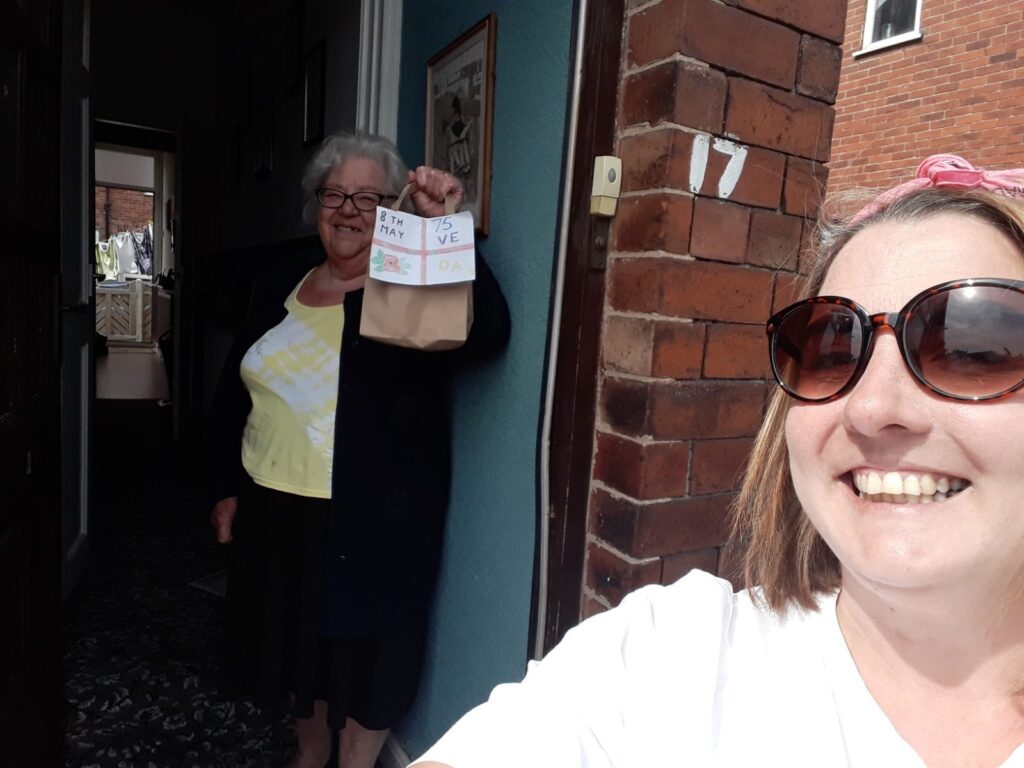
A new report has praised grassroots community groups in Leeds for the vital support they have provided for older people during the COVID-19 pandemic.
The report, jointly compiled by the Centre for Ageing Better charitable foundation and Sheffield Hallam University’s Centre for Regional Economic and Social Research, highlights how Leeds Neighbourhood Networks have acted as a lifeline for older people in the city over the last nine months.
Funded by Leeds City Council and Leeds Clinical Commissioning Group, the Leeds Neighbourhood Networks are a group of 34 voluntary organisations that cover every part of the city, delivering services designed to help older people live independent lives and play active parts in their local communities.
In South Leeds these are: Belle Isle Senior Action, Holbeck Together, MHA Communities South Leeds (formerly the South Leeds Live At Home Scheme, covering Beeston, Cottingley and Hunslet), Middleton Elderly Aid and Trinity Network (Belle Isle and Beeston Hill).
The Centre for Ageing Better report says the value of these organisations has been underlined by their important role in the city-wide response to the COVID-19 crisis.
The report also says the pandemic has illustrated the need for national government to give councils the “adequate and flexible” funding required to sustain initiatives such as the Leeds Neighbourhood Networks.
Despite the financial pressures caused by COVID-19, Leeds City Council is bringing forward proposals which will protect funding for the groups next year, allowing them to continue their vital work supporting older people’s physical, mental and social wellbeing at this difficult time.
Councillor Rebecca Charlwood, Leeds City Council’s executive member for health, wellbeing and adults, said:
“The Leeds Neighbourhood Networks are a long-term success story for our city, so it’s heartening to see the work done by staff and volunteers being recognised in this way.
“Protecting and supporting older people has been a priority for the council throughout the pandemic and the tireless efforts of all those involved with the neighbourhood groups have contributed enormously to that.
“Their local knowledge and community contacts mean they have been perfectly placed to reach out and help our older residents cope with the difficulties that this year has brought.”
Anna Dixon, Centre for Ageing Better chief executive, said:
“The coronavirus has highlighted how important local support networks are, especially in times of crisis, and the vital role that trusted community organisations play in supporting people at risk.
“The Leeds Neighbourhood Networks are an excellent example of how councils and community organisations can work together to meet the needs of their communities. Their work demonstrates the value of investing in community infrastructure so it is there when it’s really needed.”
The ‘key findings’ section of the report shows that the Leeds Neighbourhood Networks were able to respond quickly to the challenges posed by lockdown and other COVID-19 restrictions, assisting vulnerable and isolated older people by doing everything from shopping to organising hot meal deliveries and picking up medicine.
Then, after the first national lockdown began to ease over the summer, they created opportunities for older people to enjoy more face-to-face contact while following social distancing rules. Notable examples of the work carried out during this period included the relaunch of an allotment project and the setting up of a mobile library service.
Elsewhere in the report, there is a focus on the willingness of the Leeds Neighbourhood Networks to adapt to changing circumstances, with some becoming community care hubs responsible for the co-ordination of voluntary action in their area. There have also been productive link-ups with private sector companies, including supermarkets, pubs, cafes and takeaways.
There is praise for the practicality of the council’s Leeds Neighbourhood Networks funding model and how it has allowed the groups to tailor their work to the specific requirements of their patch during the pandemic.
The report concludes:
“National government needs to provide adequate and flexible funding for local authorities and other local commissioners to develop and sustain social and community infrastructure such as [the Leeds Neighbourhood Networks]. Ringfencing small proportions of physical infrastructure investments, such as that of the proposed national infrastructure bank, to be spent on community infrastructure is one way to achieve this.”
This post is based on a press release issued by Leeds City Council
Photo: Staff from MHA Communities South Leeds delivering VE Day teas to residents this summer


